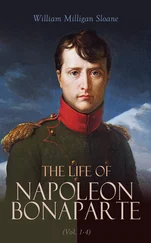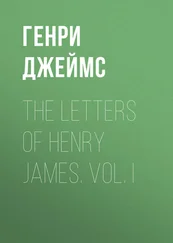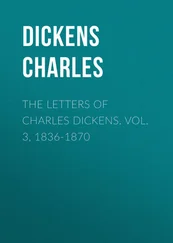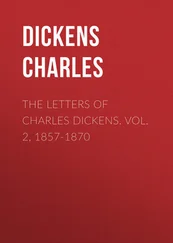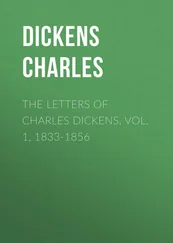William James - The Letters of William James, Vol. 1
Здесь есть возможность читать онлайн «William James - The Letters of William James, Vol. 1» — ознакомительный отрывок электронной книги совершенно бесплатно, а после прочтения отрывка купить полную версию. В некоторых случаях можно слушать аудио, скачать через торрент в формате fb2 и присутствует краткое содержание. Жанр: Биографии и Мемуары, Философия, foreign_edu, foreign_antique, на английском языке. Описание произведения, (предисловие) а так же отзывы посетителей доступны на портале библиотеки ЛибКат.
- Название:The Letters of William James, Vol. 1
- Автор:
- Жанр:
- Год:неизвестен
- ISBN:нет данных
- Рейтинг книги:5 / 5. Голосов: 1
-
Избранное:Добавить в избранное
- Отзывы:
-
Ваша оценка:
- 100
- 1
- 2
- 3
- 4
- 5
The Letters of William James, Vol. 1: краткое содержание, описание и аннотация
Предлагаем к чтению аннотацию, описание, краткое содержание или предисловие (зависит от того, что написал сам автор книги «The Letters of William James, Vol. 1»). Если вы не нашли необходимую информацию о книге — напишите в комментариях, мы постараемся отыскать её.
The Letters of William James, Vol. 1 — читать онлайн ознакомительный отрывок
Ниже представлен текст книги, разбитый по страницам. Система сохранения места последней прочитанной страницы, позволяет с удобством читать онлайн бесплатно книгу «The Letters of William James, Vol. 1», без необходимости каждый раз заново искать на чём Вы остановились. Поставьте закладку, и сможете в любой момент перейти на страницу, на которой закончили чтение.
Интервал:
Закладка:
Finally, with respect to the constancy of Henry James, Senior's, presence in the lives of his children, it should be made clear that he never had any "business" or profession to interfere with "his almost eccentrically home-loving habit." During the years of moving about Europe, during the quiet years in Newport, the family was thrown upon its inner social resources. The children were constantly with their parents and with each other, and they continued all their lives to be united by much stronger attachments than usually exist between members of one family.
William James never acknowledged himself as feeling particularly indebted to any of the numerous schools and tutors to whom his father's oscillations between New York, Europe, and Newport confided him. He was sent first to private schools in New York City; but they seem to have been considered inadequate to his needs, for he was not allowed to remain long in any one. Nor were the changes any less frequent after the family moved to Europe (for the second time since his birth) in 1855. He was then thirteen years old. The exact sequence of events during the next five years of restless movement cannot be determined now, but the important points are clear. The family, including by this time three younger brothers and a younger sister as well as a devoted maternal aunt, remained abroad from 1855 to 1858. London, Paris, Boulogne-sur-Mer, and Geneva harbored them for differing periods. In London and Paris governesses, tutors, and a private school of the sort that admits the irregularly educated children of strangers visiting the Continent, administered what must have been a completely discontinuous instruction. In Boulogne, William and his younger brother Henry attended the Collège through the winter of 1857-58. This term at the Collège de Boulogne , during which he passed his sixteenth birthday, was his earliest experience of thorough teaching, and he once said that it gave him his first conception of earnest work. Then, after a year at Newport, there was another European migration—this time to Geneva for the winter of 1859-60. There William was entered at the "Academy," as the present University was still called. He subsequently described himself as having reached Geneva "a miserable, home-bred, obscure little ignoramus." During the following summer he was sent for a while to Bonn-am-Rhein, to learn German. Some Latin, mathematics to the extent of the usual school algebra and trigonometry, a smattering of German and an excellent familiarity with French—such, in conventional terms, was the net result of his education in 1859. He tried to make up for the deficiencies in his schooling, and as occasion offered he picked up a few words of Greek, attained to a moderate reading knowledge of Italian, and a quite complete command of German. But these came later.
He seldom referred to his schooling with anything but contempt, and usually dismissed all reference to it by saying that he "never had any." But, as is often the case with even those boys who follow a regular curriculum, his amusements and excursions beyond the bounds of his prescribed studies did more to develop him appropriately than did any of his schoolmasters. An interest in exact knowledge showed itself early. He once recalled a trivial incident which illustrates this, though he apparently remembered it because he realized, young as he was when it occurred, that it grew out of a real difference between the cast of his mind and the cast of Henry's. As readers of the "Small Boy" will remember, Henry, at the ordinarily "tough" age of ten, was already animated by a secret passion for authorship, and used to confide his literary efforts to folio sheets, which he stored in a copy-book and which he tried to conceal from his tormenting brother. But William came upon them, and discovered that on one page Henry had made a drawing to represent a mother and child clinging to a rock in the midst of a stormy ocean and that he had inscribed under it: "The thunder roared and the lightning followed!" William saw the meteorological blunder immediately; he fairly pounced upon it, and he tormented the sensitive romancer about it so unmercifully that the occasion had to be marked by punishments and the inauguration of a maternal protectorate over the copy-book. About four years later, when he was fifteen years old, his father bought a microscope to give him at Christmas. William happened upon the bill for it in advance, and was hardly able to contain his excitement until Christmas day, so portentous seemed the impending event. Apparently no similar experience ever equalled the intensity of this one. He doubtless made as good use of the instrument as an unguided boy could. But though his proclivities were generously indulged, they were never trained. At Geneva he began to study anatomy, but there was no regular instruction in osteology; so he borrowed a copy of Sappey's "Anatomie" and got permission to visit the Museum and there examine the human skeleton by himself.
Clearly, there was profit for him also in the restlessness which governed his father's movements and which threw the boy into quickening collision with places, people, and ideas at a rate at which such contacts are not vouchsafed to many schoolboys. From so far back as his nineteenth year (there is no evidence to go by before that) William was blessed with an effortless and confirmed cosmopolitanism of consciousness; and he had attained to an acquaintance with English and French reviews, books, paintings, and public affairs which was remarkable not only for its happy ease, but, in one so young, for its wide range. The letters which follow show clearly with what expert observation he responded, all his life, to changes of scene and to the differences between peoples and environments. The fascination of these differences never failed for him when he traveled, and his letters from abroad give such voluminous proof of his own addiction to what he somewhat harshly called "the most barren of exercises, the making of international comparisons," that the problem of the editor is to control rather than to emphasize the evidence. He began young to be a wide reader; soon he became a wide reader in three languages. Above all, he was encouraged early to trust his own impulse and pursue his own bent. Probably his active and inquiring intelligence could not have been permanently cribbed and confined by any schooling, no matter how narrow and rigorous. But, as nothing was to be more remarkable about him in his maturity than the easy assurance with which he passed from one field of inquiry to another, ignoring conventional bounds and precincts, never losing his freshness of tone, shedding new light and encouragement everywhere, so it is impossible not to believe that the influences and circumstances which combined in his youth fostered and corroborated his native mobility and detachment of mind.
Meanwhile he had one occupation to which no reference has yet been made, but to which he thought, for a while, of devoting himself wholly, namely, painting. He began to draw before he had reached his 'teens. Henry James said: "As I catch W. J.'s image, from far back, at its most characteristic, he sits drawing and drawing, always drawing, especially under the lamp-light of the Fourteenth Street back parlor; and not as with a plodding patience, which I think would less have affected me, but easily, freely, and, as who should say, infallibly: always at the stage of finishing off, his head dropped from side to side and his tongue rubbing his lower lip. I recover a period during which to see him at all was so to see him—the other flights and faculties removed him from my view." 16 16 A Small Boy and Others , p. 207.
What was an idle amusement in New York became, when the boy was transferred to foreign places and cut off from other amusements, a sharpener of observation and a resource for otherwise vacant hours. For when the family of young Americans reached St. John's Wood, London, and then moved to the Continent, the two elder boys found little to do at first except to wander about "in a state of the direst propriety," staring at street scenes, shop-windows, and such "sights" as they were old enough to enjoy, and then to buy "water-colors and brushes with which to bedaub eternal drawing blocks." In Paris William had better lessons in drawing than he had ever had elsewhere, and it seems fair to say that he made good use of his opportunity to educate his eye; saw good pictures; sketched and copied with zest; and began to show great aptitude in his own "daubings." From Bonn, later still, he wrote to his Genevese fellow student Charles Ritter: "Je me suis pleinement décidé à éssayer le métier de peintre. En un an ou deux je saurais si j'y suis propre ou non. Si c'est non, il sera facile de reculer. Il n'y a pas sur la terre un objet plus déplorable qu'un méchant artiste."[18]
Интервал:
Закладка:
Похожие книги на «The Letters of William James, Vol. 1»
Представляем Вашему вниманию похожие книги на «The Letters of William James, Vol. 1» списком для выбора. Мы отобрали схожую по названию и смыслу литературу в надежде предоставить читателям больше вариантов отыскать новые, интересные, ещё непрочитанные произведения.
Обсуждение, отзывы о книге «The Letters of William James, Vol. 1» и просто собственные мнения читателей. Оставьте ваши комментарии, напишите, что Вы думаете о произведении, его смысле или главных героях. Укажите что конкретно понравилось, а что нет, и почему Вы так считаете.



